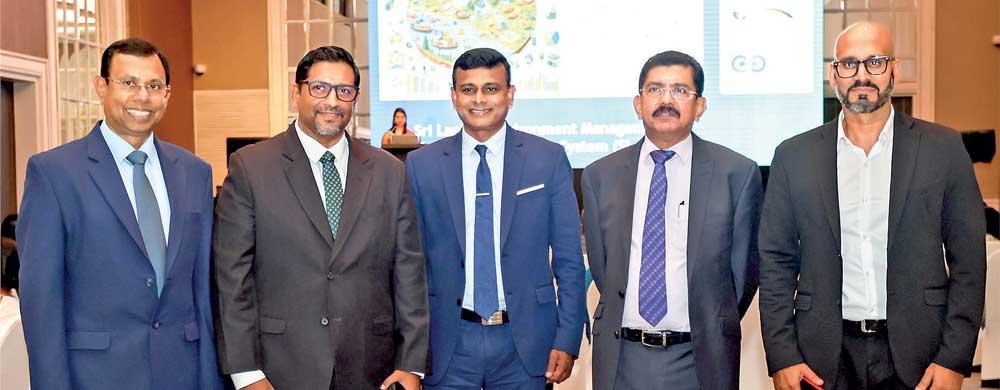23 Jul 2024 - {{hitsCtrl.values.hits}}

From left: Dr. Ananda Mallawatantri, Advisor to the President on Environment, Climate Change and Green Finance; Ruwan Wijewardene, Senior Advisor to the President on Climate Change; Prabath Chandrakeerthi, Secretary to the Ministry of Environment; Dr Anil Jasinghe, CEO, Climate Change Office and Chanditha Smaarnayake - Chairman, Connect to Care
The Presidential Secretariat Support Unit, in collaboration with the Climate Change Office of the Presidential Secretariat and the Ministry of Environment held the inaugural consultation for the Sri Lankan Environment Management Effectiveness Tracking System (SL EMETS) at the Hilton, Colombo recently.
The event brought together key stakeholders, scientists, and policymakers to discuss the value and design of this groundbreaking national-level environmental management approach and the system.
The idea for the SL EMETS was conceived following the International Climate Change Forum (ICCF) in November 2023, where the need for a robust system to track climate adaptation initiatives in Sri Lanka was highlighted.
Appreciating the connection between the climate adaptation potential and the long-term ecosystem sustainability that involves air, water, soil, biodiversity, etc., the system aims to address the longstanding need for an effective tracking system for environment governance.
This system is a prerequisite for facilitating the oversight of green investments, sustainable financing, and monitoring of overall development progress, in a changing climate.By providing accurate and timely data, SL EMETS will ensure a resilient and sustainable future for all Sri Lankans.
The consultation featured three thematic working groups focusing on Coastal & Marine Environment, Terrestrial Environment and Systems, Funding and Operational Aspects of the envisaged SL EMETS development and implementation. These groups engaged in technical discussions to review essential environment variables for long-term measurements, identify optimal locations for measurement sites, frequency and accuracy of planned measurements to enable research, policy planning and education along with a potential public-private partnerships approach for the sustainability of the SL METS operations.
Introducing and highlighting the significance of this initiative, Dr. Ananda Mallawatantri, Advisor to the President on Environment, Climate Change, and Green Finance emphasized, “Sri Lanka is on a path to economic recovery and should aim towards a strong blue-green economy. The Management Effectiveness Tracking System (METS) will facilitate evidence-based decision-making, promoting both local and global collaborations. This system will foster informed engagement among policymakers, corporate entities, development partners, financial institutions, NGOs, and communities.”
Endorsing and appreciating the timeliness of SL METS, Ruwan Wijewardene, Senior Advisor to the President on Climate Change said, “The envisaged environment management system will be a critical tool for Sri Lanka’ssustainable and resilient economic recovery and to overcome the adverse impacts of climate change.
The insights gained from the operation of the SL EMETS will guide country policies, ensuring that they are grounded in data-driven evidence and aligned with our sustainability goals.”
Prabath Chandrakeerthi, Secretary to the Ministry of Environment, while offering the fullest cooperation of the Ministry, underscored the relevance of localized efforts including citizen science approaches within the proposed SL METS.
He remarked, “Factoring locally relevant data and community involvement is essential in designing this system. It will not only track environmental management but also support Sri Lanka’s low-carbon economic growth towards Net-Zero.”
Dr. Fergus Sinclair, Chief Scientists of CIFOR-ICRAF, highlighted the importance of locally relevant indicators for effective project delivery and community engagement, proposing the EMETS system as a pilot for the Green Climate Fund-backed Knuckles Project.
26 Nov 2024 34 minute ago
26 Nov 2024 2 hours ago
26 Nov 2024 2 hours ago
26 Nov 2024 4 hours ago
26 Nov 2024 4 hours ago